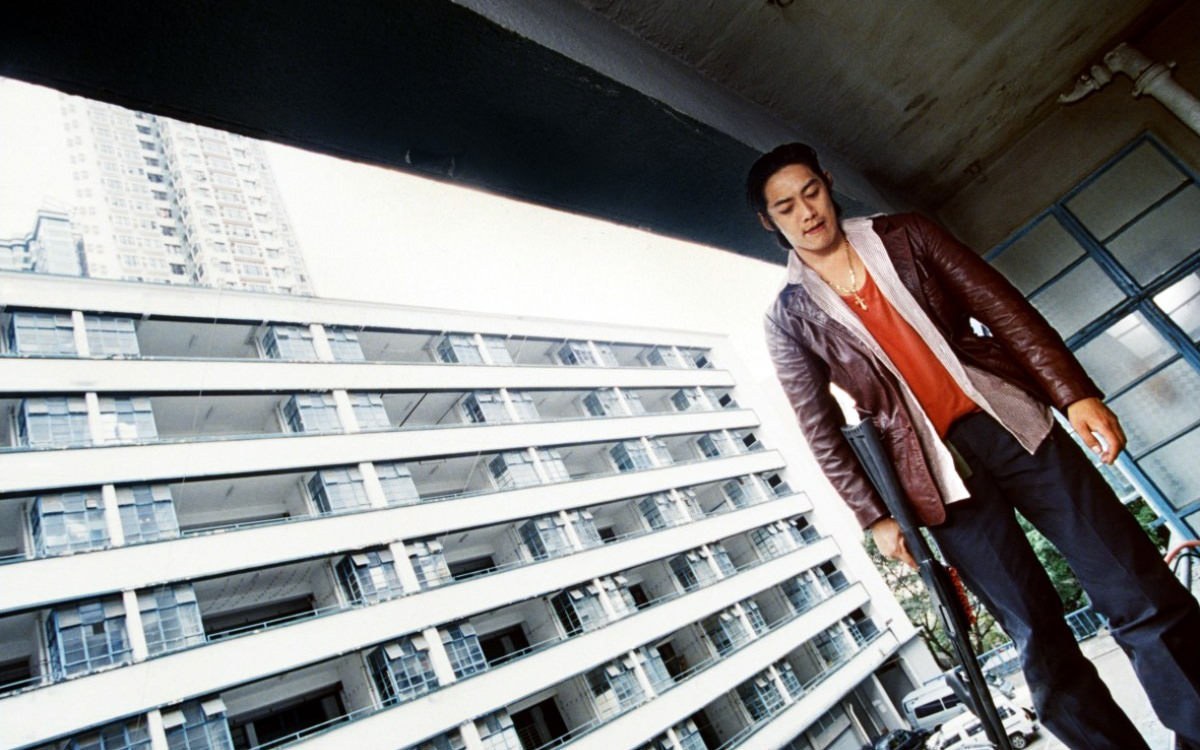Fulltime Killer by Johnnie To, Wai Ka-Fai (Review)

I went into Fulltime Killer fully expecting another stylish, albeit hyper-violent romp through the world of Hong Kong assassins. Not that that’s a bad thing, mind you. Thanks to the likes of John Woo, Hong Kong has made a virtual cottage industry out of this genre, and no one does it better. And I got exactly what I was expecting until about two-thirds into the movie. Then it threw me a curveball that left me puzzled and reeling until the very end.
The set-up feels pretty generic. On one hand, there’s O (played with the utmost of cool by Takashi Sorimachi), Asia’s best hitman. He’s mysterious, efficient, and completely dedicated to the job, even if it means killing an old friend to keep him from squealing. On the other hand, there’s Tok (played with the kind of smarm that only Andy Lau has), the new assassin on the block who wants O’s crown. Unlike O, Tok is flashy and brazen, even going so far as to take out people in the middle of a busy street for everyone to see. He dresses in leather, rides motorcycles, and lives up the killer lifestyle.
Caught in the middle is Chin, a young woman hired by O to clean his apartment. In reality, O doesn’t live there; he lives across the street in an abandoned warehouse. Haunted by the murder of Nancy, his former cleaner, he watches over Chin and begins to fall for her. Tok begins seeing Chin as well, hoping to use her to get to O. Meanwhile, Police Inspector Lee (the venerable Simon Yam) is pursuing O and Tok to bring them to justice. However, the stress of the case threatens to drive Lee insane.
Okay, so maybe it’s not quite so generic. But for the first two-thirds or so of the movie, O and Tok play an increasingly complex game of cat and mouse, both with each other and with their betraying bosses. But just when you think things come to a head, with the police closing in on O and Tok, things just get wierd.
It’s the growing madness of Lee that eventually becomes the movie’s lynchpin. After a climactic shootout leave’s Lee’s forces in tatters, he completely loses it. He quits the force, and decides to write a book about the case, believing that’s the only way he can solve it. Unfortunately, he can never come up with a satisfactory ending. Just when he hits rock bottom, Chin appears out of nowhere, promising to tell him how it really ends.
While Fulltime Killer is throwing the viewer for a loop, it’s also throwing out one movie reference after another, until it almost feels like a tribute of sorts. There are nods to El Mariachi and Le Samourai. Hard Boiled’s library scene makes an appearance. Tok gives Chin some shooting lessons à la The Professional. Chin’s incredulous responses to Tok’s claims of being an assassin are reminiscent of Gross Point Blanke. At first, it’s fairly humorous to see a scene from another movie make an appearance. But after awhile, you start to wonder at the point of it all. Paying homage to other, well-known movies in the genre is one thing; but soon, it starts to feel oddly ingratiating.
Any talk about Fulltime Killers acting has to start and end with Sorimachi’s performance. Like I said before, he plays O with the utmost of cool; calm, collected, and completely brutal. However, O is also wracked with guilt for the consequences of his lifestyle, like the death of Nancy and having to murder his best friend from high school. O is a conflicted person, though he hides it behind an icy, professional facade. Sorimachi captures this perfectly. 95% of the time, O may be a killer. But Sorimachi’s performance makes that other 5%, when O wants to lead a better life, that much more poignant. As O’s rival, Andy Lau perfectly captures the flamboyance of Tok with the kind of smarm that only Lau can pull off.
But it all comes down to the ending. I have to hand it to directors To and Wai; my jaw was on the ground throughout most of the movie’s final act. I had no idea how the directors would try to wrap up the movie, or even if they could. However, as interesting as the ending’s concept may have been, it doesn’t prove to be enough. The movie runs out of steam well before the credits, and the ending feels like a letdown.
That’s because the movie has spiraled too far from its original focus. The final showdown between O and Tok, the event the whole movie’s been moving towards, feels like an afterthought rather than the climax it should’ve been. And compared to the maddening ride through Lee’s insanity, the final scenes feel too nice, too neat, and too simple. Perhaps they had some poignancy in the novel the movie is based on, but watching them onscreen, don’t be surprised if you feel a little cheated.